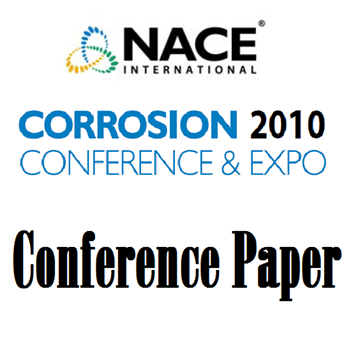Search
Performance of Corrosion-Resistant Alloys in Acidic Chloride Solutions containing Bleach
Also Purchased
98459 THE “UP’S AND DOWN’S” OF THE PULP & PAPER INDUSTRY
Product Number:
51300-98459-SG
ISBN:
98459 1998 CP
$20.00
10083 UNS S31254 - A Bleach Plant Success Story
Product Number:
51300-10083-SG
ISBN:
10083 2010 CP
Publication Date:
2010
$20.00
01414 ADVANCES IN MATERIALS FOR SODIUM HYPOCHLORITE SERVICE
Product Number:
51300-01414-SG
ISBN:
01414 2001 CCP
$20.00




